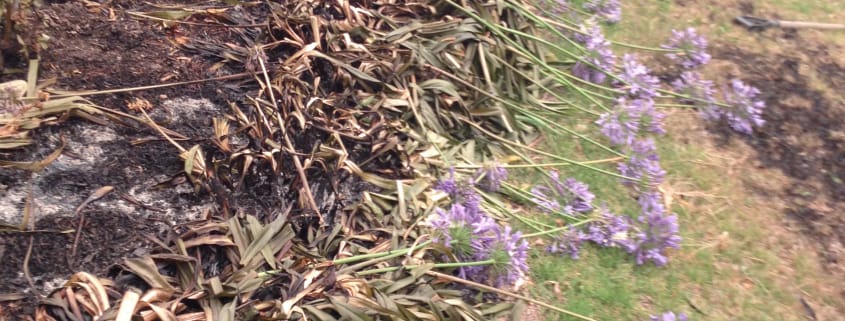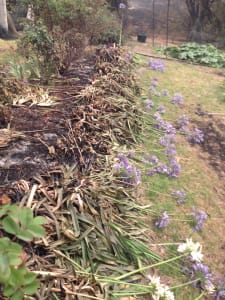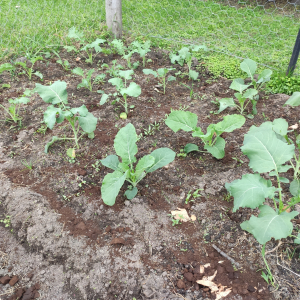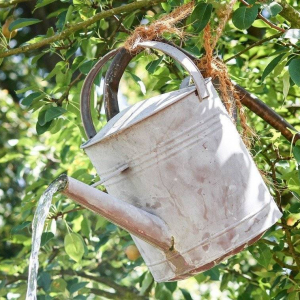Garden recovery after the fires
With the recent bushfire heavily impacting our lives, our homes and our gardens, I have been asked by many of our friends and customers how to help their gardens recover.
Although some might think there are more important things to do, remember that our gardens are our retreat when we need some time out, and it is crucial that we put them back to somewhere as close as they were, prior to the fires.
There are several degrees of damage that plants will have experienced from just a scorching to a total burn to the ground. It is important to look at each plant on its own merits, to identify the type of plant and how it should be treated.
There are several categories of plants, including groundcovers, grasses, perennials, shrubs and trees. Depending on the ferocity of the fire and how your garden was designed, the effect will be different for each category.
Other than making larger plants safe, the best initial treatment is to give them all a water and a thorough wash down to remove any black ash to allow them to breathe. With rain that is starting to come back slowly, plants may recover by themselves. The last thing they need is a hard cut-back which in turn will force new growth which will put them under further stress to try to recover.
Start to prune and fix the plant in early autumn when the days are cooling down. I suggest the following treatment:
Grasses, whether native or exotic: trim back by one third.
Perennials like Salvia, Lavenders: remove any dead wood and do an all-over reduction by a third.
Shrubs, whether introduced or Australian natives: remove any burnt or dead wood and again reduce the total foliage by one third. Larger shrubs like Callistemon, Grevillea, Melaleuca and Banksia should be cut back to where new regrowth is appearing. This can be quite severe. Many Australian natives will recover very well from fire as they always have.
A sad fact is that, if introduced trees like Oaks, Elms and Birches are severely burnt, they will not recover. If you have the patience, wait and see what happens next spring. Wattles will probably not come back; however, native Eucalypts should recover over time by epicormic growth.
A few other things to remember:
The ash that is formed from the burnt plants is of no great benefit to the soil. It can cause the soil to become hydrophobic and not allow moisture in. Spreading a re-wetting agent will help.
Don’t fertilise the garden until early autumn.
If replacing your mulch near the home, might I suggest the use of gravel. Although initially more expensive it will last longer than wood mulches and does not burn.
There is so much to know about this subject and this space does not allow me to cover everything. Talk to your local nursery person to help out in your situation.



